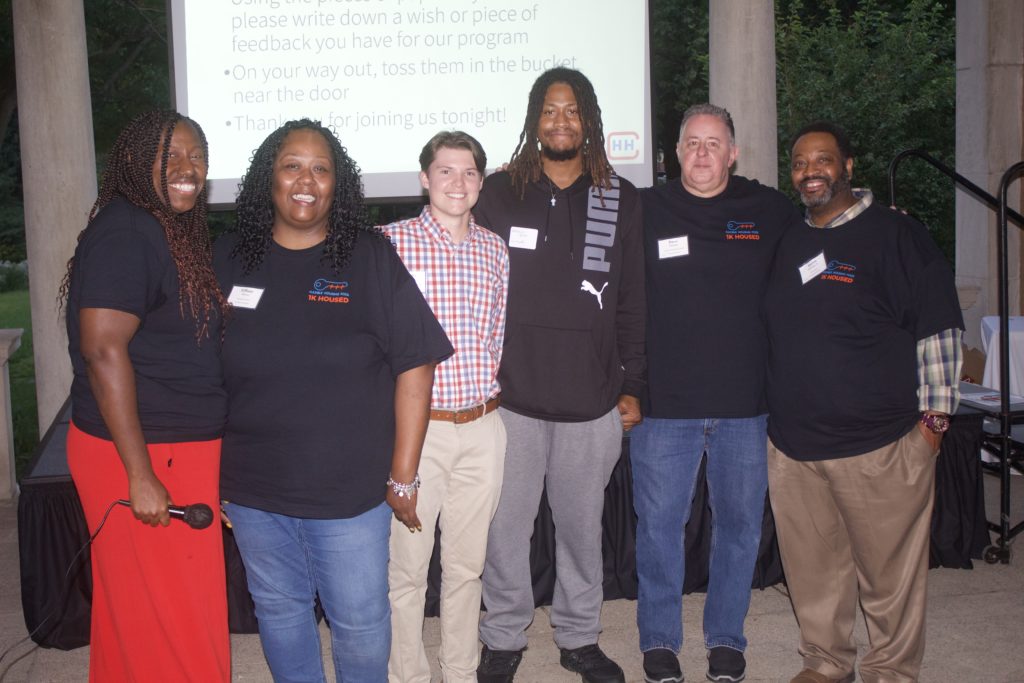our work
Housing First
Housing first is a philosophy that links people experiencing homelessness to safe and affordable permanent housing quickly and with minimal barriers, so people can start their journey to a healthier life sooner. With housing first, the stability of housing leads to improved health outcomes and reduced use of emergency health services.
Our Approach
Housing first means removing barriers for our clients to become stably housed. We continue to reduce wait times for our clients to be placed into housing. In 2023, the Flexible Housing Pool averaged 32 days from enrollment to housing. Clients who need them can access supportive wraparound services to help them thrive. We are firmly committed to achieving racial equity in health outcomes for our clients. We are expanding our work in areas of harm reduction and advocacy to further promote health and stability for homeless people in Chicago.

Identification and Assessment
People facing homelessness are identified and assessed for housing and supportive services in an accessible, equitable and transparent manner. Sobriety or adherence to mental health treatment are not requirements for the programs.
Housing Location
Efforts are made to help people experiencing homelessness move into permanent housing as quickly as possible, streamlining application and approval processes, and reducing wait times.
Ongoing Case Management and Supportive Services
Supportive services are offered to maximize housing stability and prevent returns to homelessness, as opposed to addressing predetermined treatment goals prior to permanent housing entry. Many people experience stability and improvements in quality of life, in the areas of health, mental health, substance use, and employment, as a result of achieving housing.
Commitment to Racial Justice
“One of the hallmarks of White Supremacy is fixing the problem and trying to directly come to a solution rather than sit with the discomfort. Rather than taking the time to really do things right and allow for different levels of work.” When asked about his experience in developing the Center for Housing and Health (CHH) and AIDS Foundation Chicago’s (AFC) Racial Equity Action Plan (REAP), Peter Toepfer, the Executive Director, opened up about the amount of patience and collaboration that was required to produce such an ambitious, but necessary plan for the future of the organization. The plan is a tool for improving and creating more equitable culture and processes at CHH and AFC (CHH is a subsidiary of AFC). As an organization that tackles issues contributing to homelessness and health inequities in Chicagoland, it is impossible for CHH to ignore the intersectionality between these challenges and racial equity. However, REAP is not aiming to be the sole solution for cultural competency within this organization. Peter Toepfer understands that more work is ahead, and that feedback from community stakeholders is encouraged to improve future initiatives..